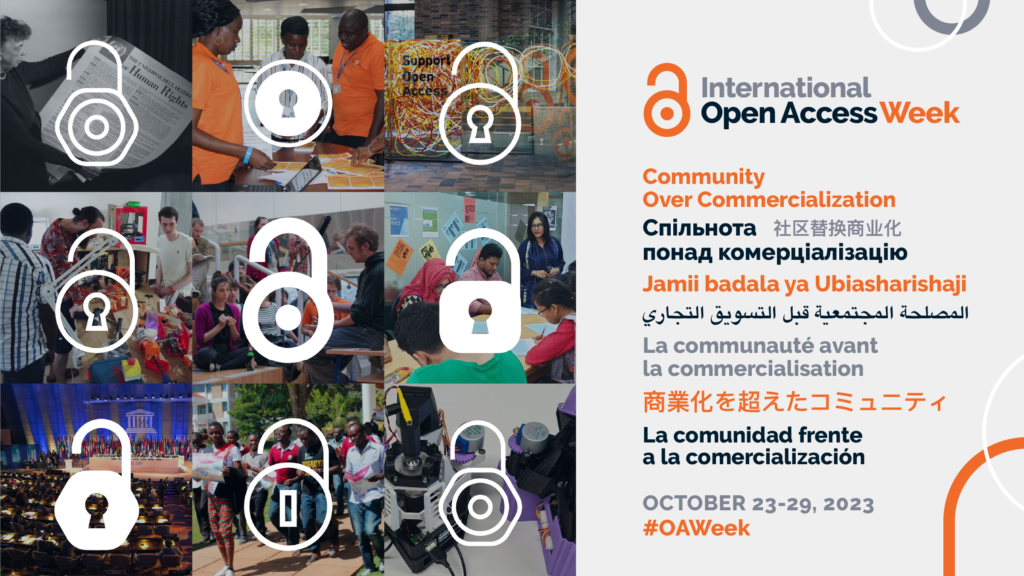
Open Access Week has announced the theme for OA Week 2023 (October 23-29), “Community over Commercialization.” This theme is intended to focus attention and discussion of practices that advance the original open access purpose to contribute to a public good. More recently, the UNESCO Recommendation on Open Science highlights the need to prioritize community over commercialization in its calls for the prevention of “inequitable extraction of profit from publicly funded scientific activities” and support for “non-commercial publishing models and collaborative publishing models with no article processing charges.”
The Open Access Advisory Committee invites people to explore the benefits and consequences of community-based or commercial organizations in their roles of serving research communities and the public. Does profit have a place, and to what degree? How are diversity, equity, inclusion and justice best served? When does the collection and use of personal data begin to undermine academic freedom?
